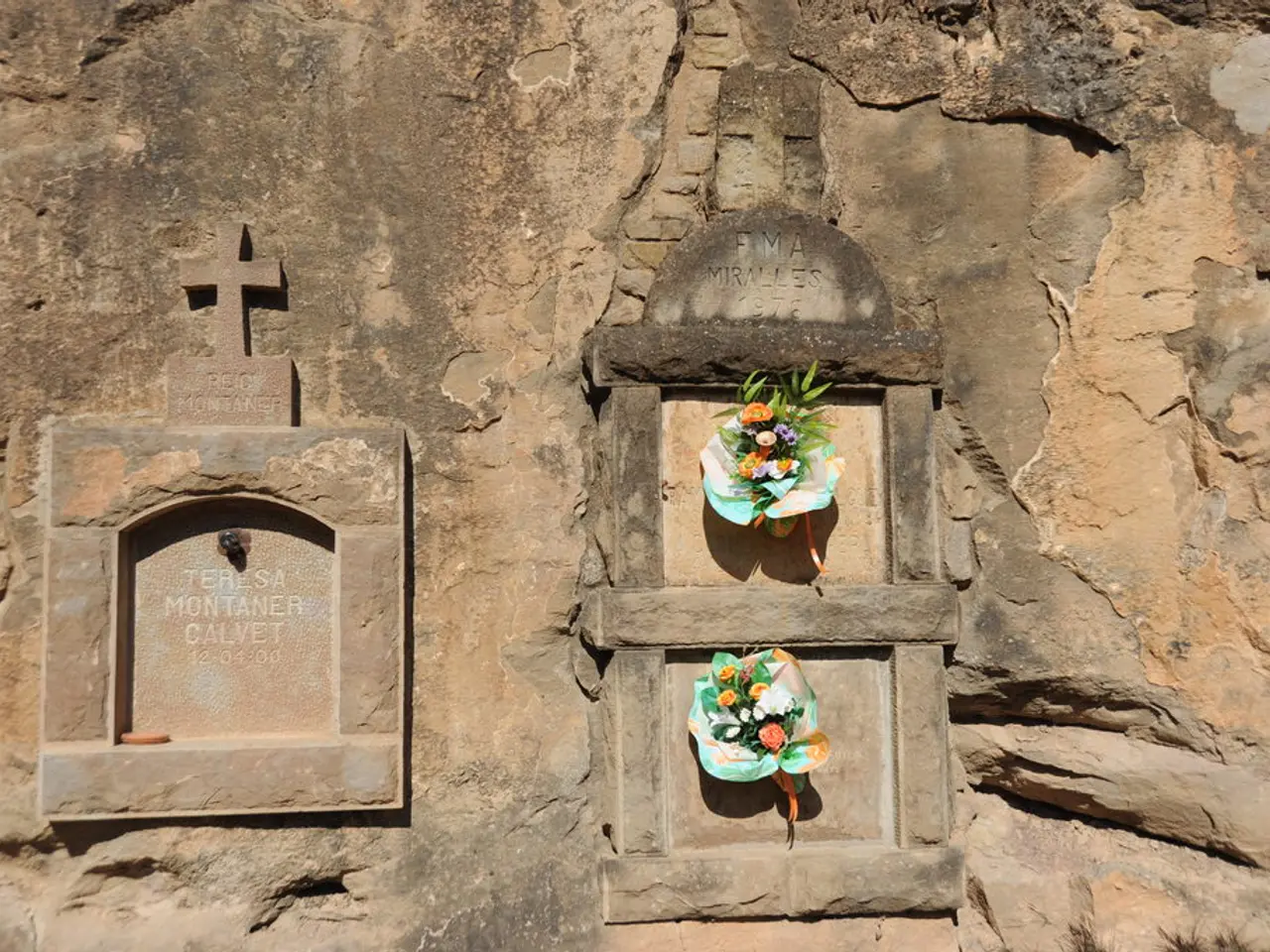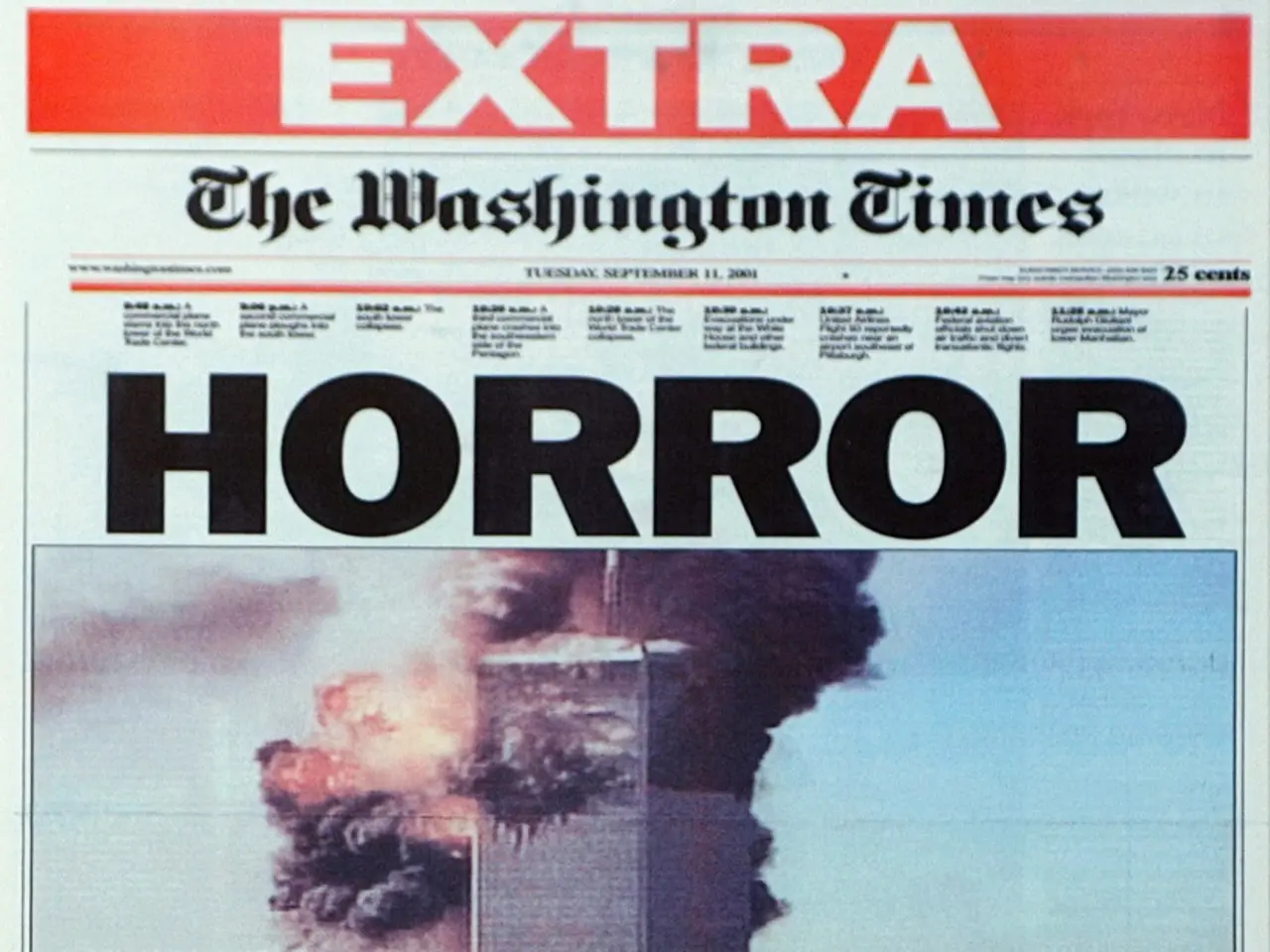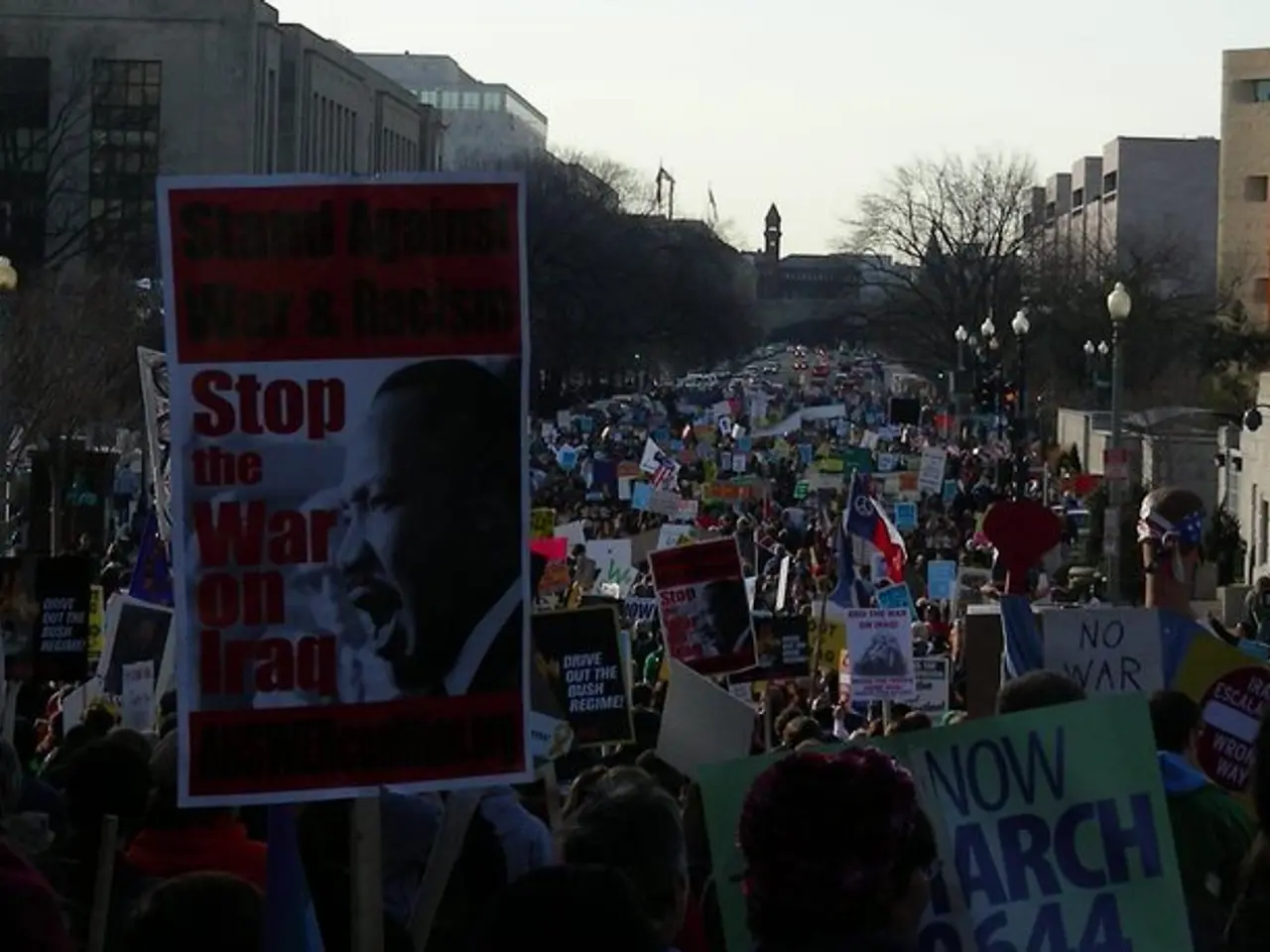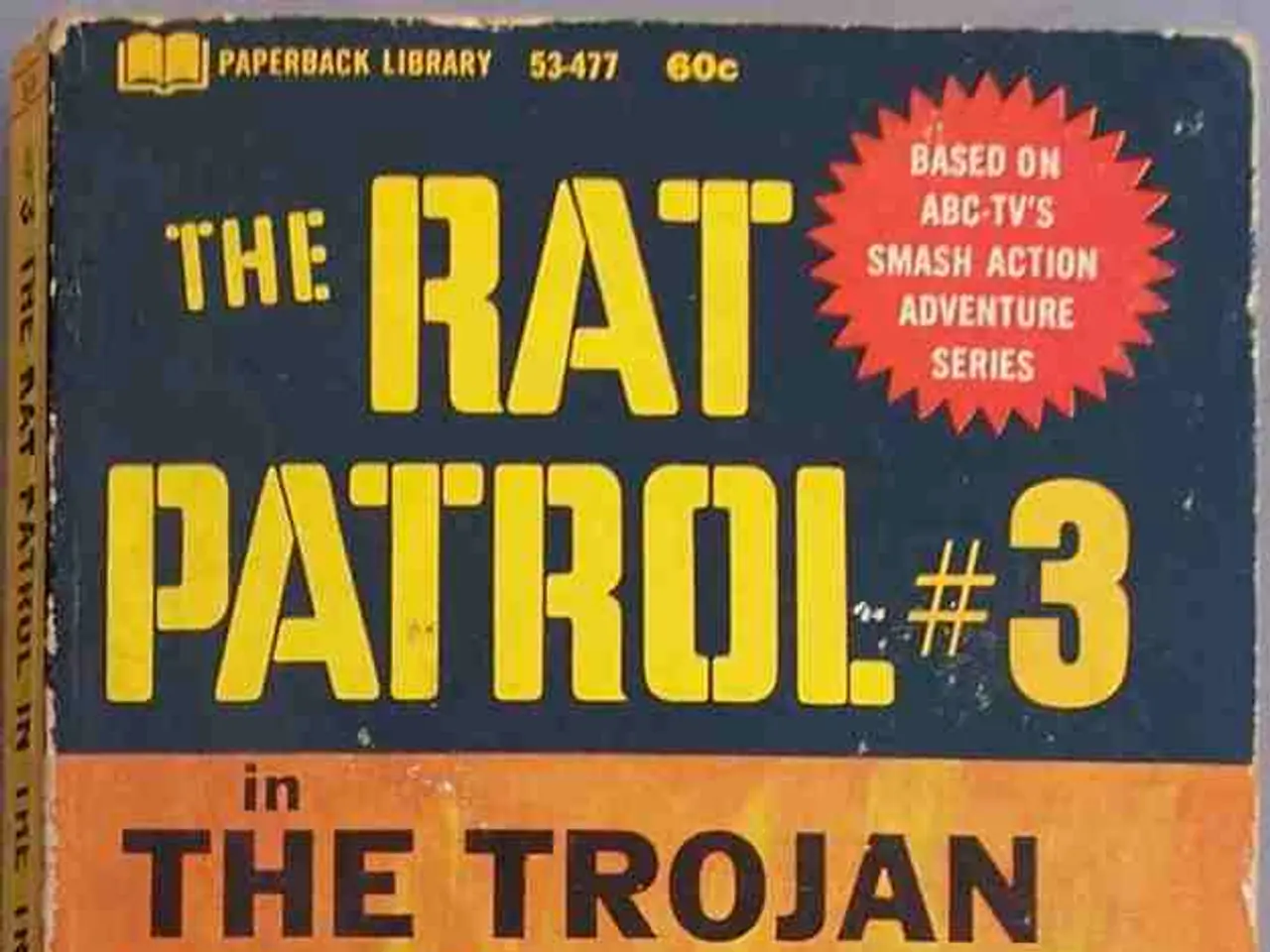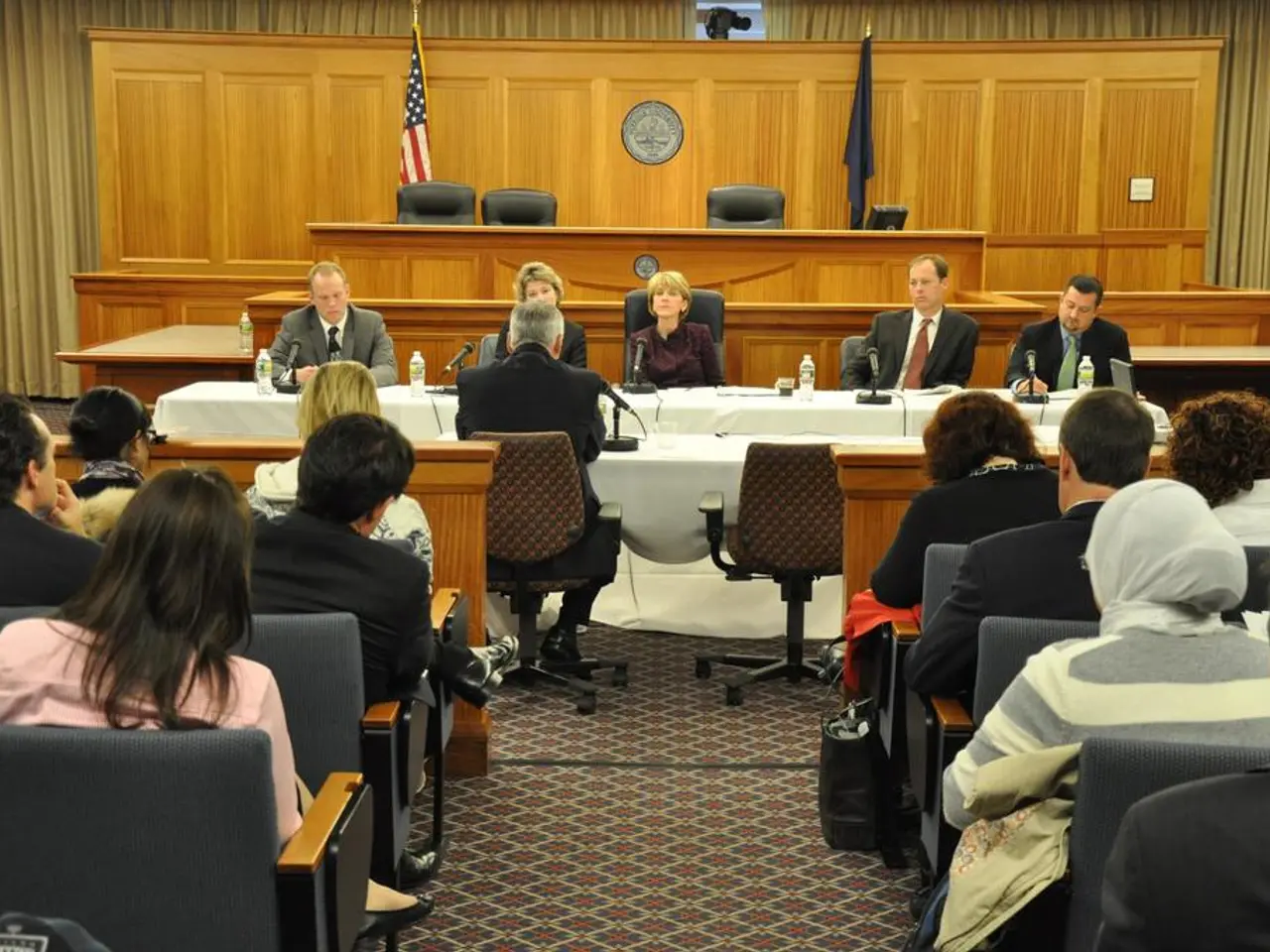Tensions arise within Romania's ruling coalition as state funeral proceedings for former President Ion Iliescu unfold
Controversy Surrounds State Funerals of Former Romanian President Ion Iliescu
Romania is currently embroiled in a political controversy over the state funerals of former president Ion Iliescu, who passed away at the age of 95 on August 5. The ruling coalition is divided sharply over the national mourning declared for him.
The Save Romania Union (USR) party has proposed not to declare a national day of mourning and has announced that its representatives will not attend the funeral. This stance is rooted in respect for the victims of the 1989 Revolution and the 1990 Mineriads, during which violent crackdowns took place under Iliescu's leadership[1][2].
USR leader Dominic Fritz has criticized Iliescu for overseeing a post-communist system that has allegedly hindered Romania's progress. Fritz also emphasized that many victims of past abuses still await justice[3].
In contrast, the Social Democratic Party (PSD), founded by Iliescu and a coalition partner, has strongly condemned USR's position. PSD accused USR of "public incitement to hatred" and suspended coalition meetings in protest. PSD respects the state institutions and refutes what it sees as attempts to distort history[2].
The dispute reveals deep divisions over Iliescu’s legacy. Some view him as a guarantor of peaceful transition to democracy, while others see him as a symbol of a "hijacked revolution" and delayed reforms[5].
The indictment against Ion Iliescu involves allegations of political repression during the June 1990 Mineriad, resulting in four deaths, hundreds of injuries, and over 1,200 unlawful detentions[4]. Meanwhile, the "1989 Revolution" case, which involves allegations of deceiving the public through disinformation campaigns, is still under investigation[6].
This controversy appears to be a coalition rift caused by the politicized interpretation of Iliescu’s legacy. USR’s refusal to honor a national mourning and attend the funeral challenges the official narrative upheld by PSD, exposing unresolved historical and political tensions dating back to Romania’s turbulent post-communist transition[1][2][3][5].
[1] Save Romania Union (USR) Proposes Not to Declare National Day of Mourning for Ion Iliescu. (n.d.). Retrieved from https://www.usr.ro/stiri/save-romania-union-proposes-not-to-declare-national-day-of-mourning-for-ion-iliescu
[2] Romania's Social Democratic Party Suspends Coalition Meetings Over Iliescu's Funeral. (2025, August 6). Retrieved from https://www.romania-insider.com/romanias-social-democratic-party-suspends-coalition-meetings-over-iliescus-funeral/
[3] USR Leader Criticizes Ion Iliescu, Says His Death is Painful Due to Unresolved Wounds from His Political Era. (2025, August 5). Retrieved from https://www.digi24.ro/stiri/politica/fritz-iliescu-moartea-este-dolorosa-datorita-ranilor-nerezolvate-din-epoca-politica-iliescus-465830
[4] Indictment Against Ion Iliescu for Crimes Against Humanity in the June 1990 Mineriad. (2025, April). Retrieved from https://www.protv.ro/stiri/politica/iliescu-indictat-pentru-crime-contre-umanitate-in-mineriad-451565
[5] The Controversy Over Ion Iliescu's State Funerals: A Coalition Rift Caused by the Politicized Interpretation of His Legacy. (2025, August 6). Retrieved from https://www.romania-insider.com/the-controversy-over-ion-iliescus-state-funerals-a-coalition-rift-caused-by-the-politicized-interpretation-of-his-legacy/
[6] "1989 Revolution" Case Sent Back to Military Prosecutors. (2024, September). Retrieved from https://www.romania-insider.com/1989-revolution-case-sent-back-to-military-prosecutors/
- This coalition rift over the state funeral of former president Ion Iliescu is not only a matter of politics, but also a general news topic of significant public interest, given the controversy surrounding his legacy.
- The persisting disagreements over Ion Iliescu's funeral and the national day of mourning are intertwined with crime-and-justice issues, as there are ongoing legal cases related to his leadership during war-and-conflicts such as the 1989 Revolution and the 1990 Mineriads.
